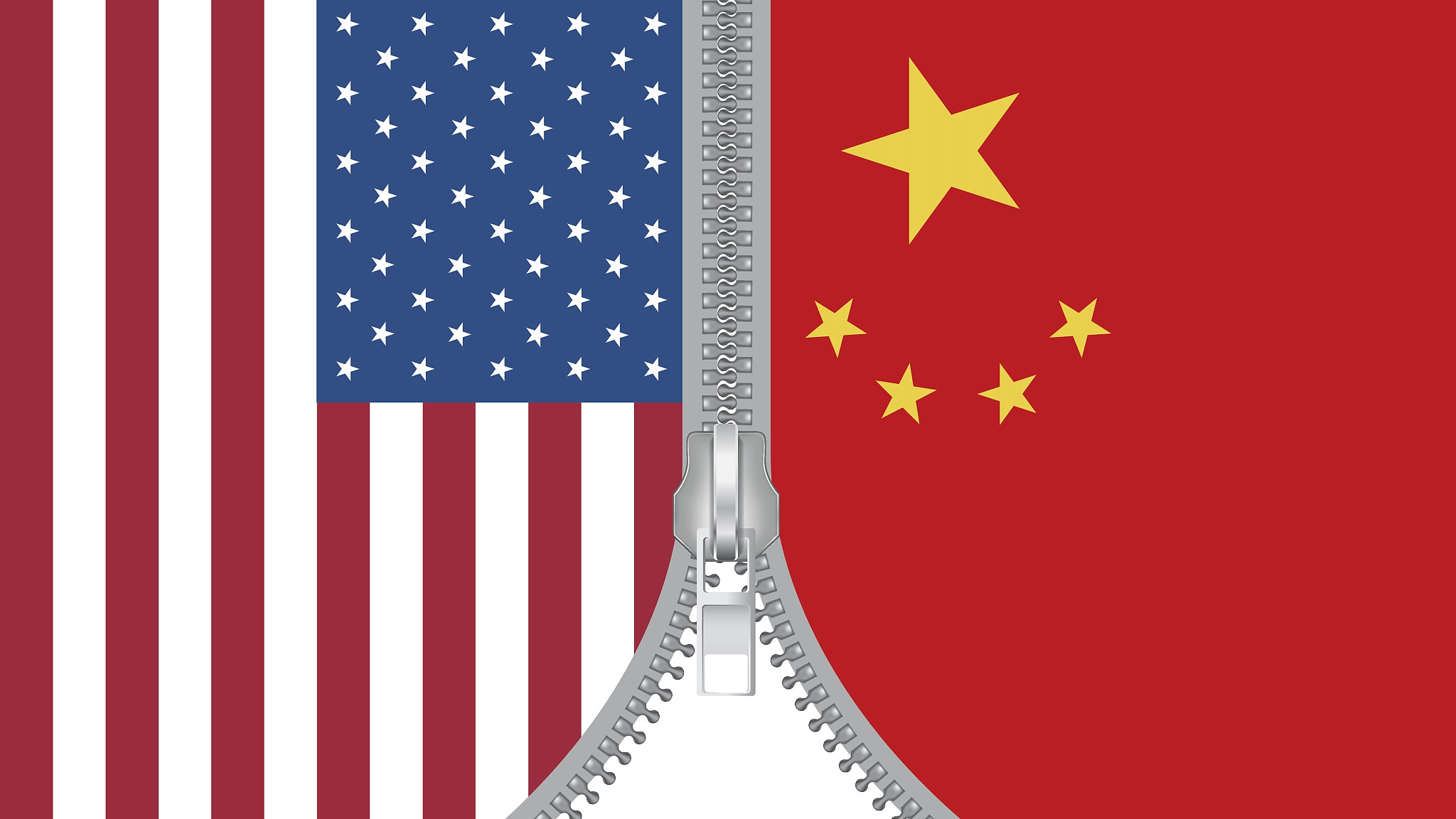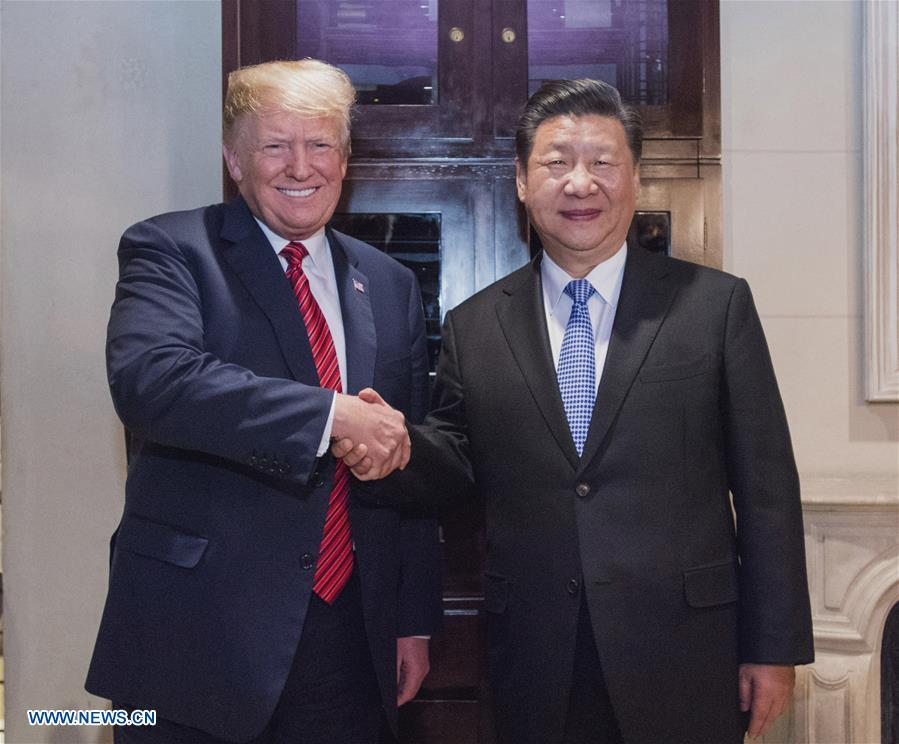
Opinions
16:17, 02-Dec-2018
Sincerity required to solve China-U.S. problems
Updated
15:59, 05-Dec-2018

Editor's Note: The editorial piece was first published by Xinhua News Agency on December 2, 2018.
This is a moment watched closely by the world. In the evening of December 1, local time, the heads of state of China and the United States held a meeting in Buenos Aires. The two sides reached consensus on economic and trade issues and decided to put on hold restrictive trade measures such as tariffs.
People concerning about China-U.S. trade frictions will undoubtedly feel relieved. The meeting suggests that as long as both sides show sincerity to solve a problem, no problem cannot be solved!
China-U.S. relations are at a critical juncture. After the two phone calls between Chinese President Xi Jinping and his U.S. counterpart Donald Trump, this meeting is their first face-to-face talk since the bilateral economic and trade frictions escalated in March this year.
The two sides decided to stop stepping up restrictive trade measures such as tariffs, which means that the two sides will no longer raise the existing tariff rate and no longer impose extra tariffs on other products. This positive signal points the direction and injects dynamism for the China-U.S. economic and trade relations in the next stage.

Chinese President Xi Jinping (R) meets with his U.S. counterpart Donald Trump in Buenos Aires, Argentina, December 1, 2018. /Xinhua Photo
Chinese President Xi Jinping (R) meets with his U.S. counterpart Donald Trump in Buenos Aires, Argentina, December 1, 2018. /Xinhua Photo
A good mentality is of vital importance in solving the China-U.S. economic and trade issues. China-U.S. trade frictions have lasted for more than eight months from spring to winter, during which the agreement once reached between two sides was torn up by the United States.
The different voices made by the U.S. in recent days have triggered concerns about the prospects of China-U.S. economic and trade cooperation. The meeting in Buenos Aires and the positive attitude emanating from it have given the world the hope of a quick solution to the current stalemate.
To solve the China-U.S. economic and trade issues, the key is to take action. China and the United States have become more familiar with each other and have built up more experience in dealing with each other after four rounds of talks held from across the Pacific to the Atlantic.
In response to differences, China has been tackling with provocations with calmness and taking countermeasures on the basis of the core interest of the country and people. In the meantime, China is continuing to deepen reform and open wider to the outside world. China's wisdom has been recognized by the international community.

A farmer walks through his soy fields in Harvard, Illinois, July 6, 2018, the same day China imposed retaliatory tariffs aimed at the US soybean market. /VCG Photo
A farmer walks through his soy fields in Harvard, Illinois, July 6, 2018, the same day China imposed retaliatory tariffs aimed at the US soybean market. /VCG Photo
Every era has its challenge which in itself is not fearsome. Finding out the right approach is the key. The Xi-Trump meeting has prevented bilateral trade frictions from escalation. However, given the complexity of the Sino-U.S. relationship, there remains a long way to go to fundamentally solve the underlying contradictions.
Both China and the United States should cherish this hard-won result and interact more positively with a calm and rational attitude. The current economic and trade teams of the two countries must implement the instructions of the two heads of state, immediately begin to resolve each other's concerns, step up consultations, reach an agreement, cancel the tariffs imposed early this year, and put the bilateral economic and trade relations back on a normal track as soon as possible for win-win results.
No matter how the world changes, China will follow its development plans in accordance to its own pace and cope with changes by sticking to fundamental principles. China has been sending signals of expanding imports from other countries, including the United States.
This has not only addressed some of the U.S. concerns, but more importantly, can help meet Chinese people's growing needs for a better life, promote high-quality economic development, and share Chinese developmental dividends with countries around the world.
President Xi said earlier that China and the U.S. share important responsibilities in promoting world peace and prosperity as major powers, and cooperation is the best choice for the two countries.
At the historical juncture of the 40th anniversary of the establishment of Sino-U.S. diplomatic relations, we believe the two countries have enough wisdom to promote their economic and trade cooperation as long as they work together to overcome hindrance, build mutual trust and meet each other in the middle.
(If you want to contribute and have specific expertise, please contact us at opinions@cgtn.com.)

SITEMAP
Copyright © 2018 CGTN. Beijing ICP prepared NO.16065310-3
Copyright © 2018 CGTN. Beijing ICP prepared NO.16065310-3